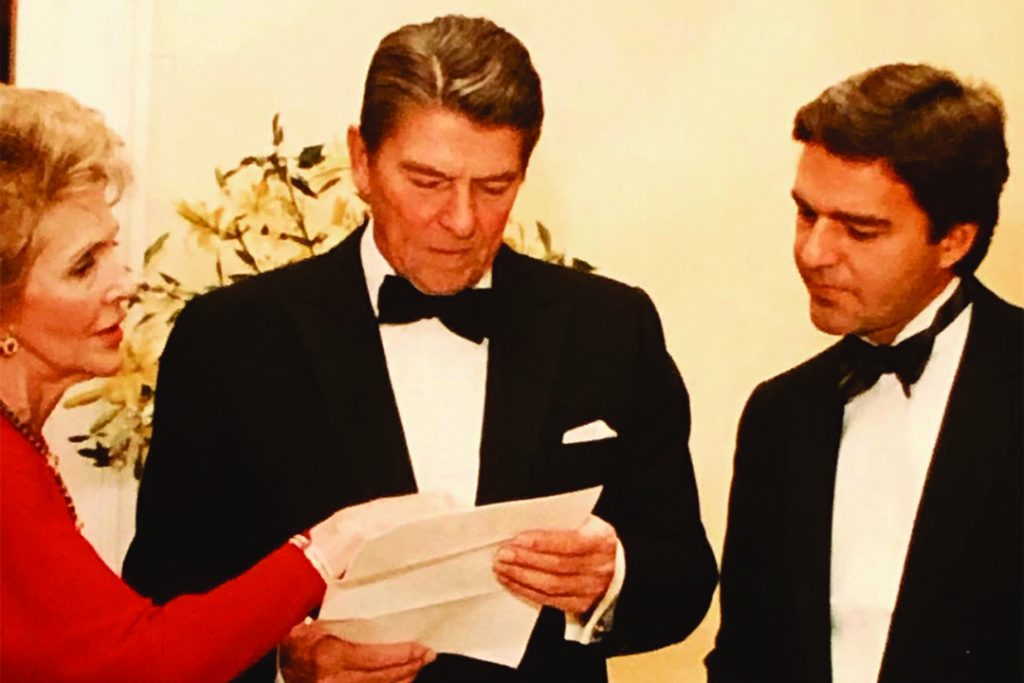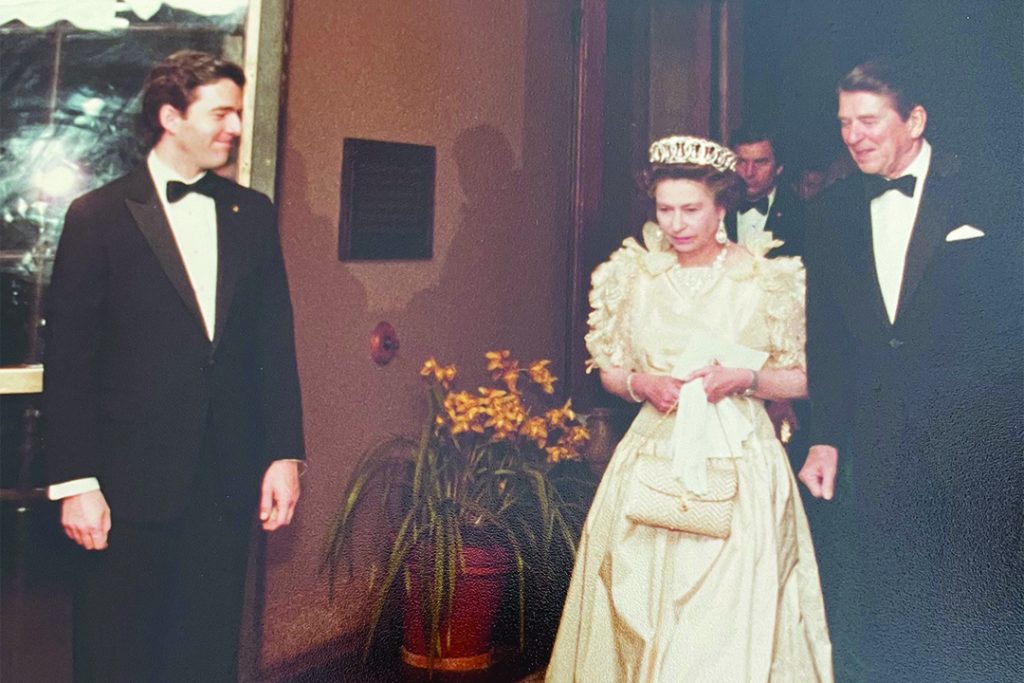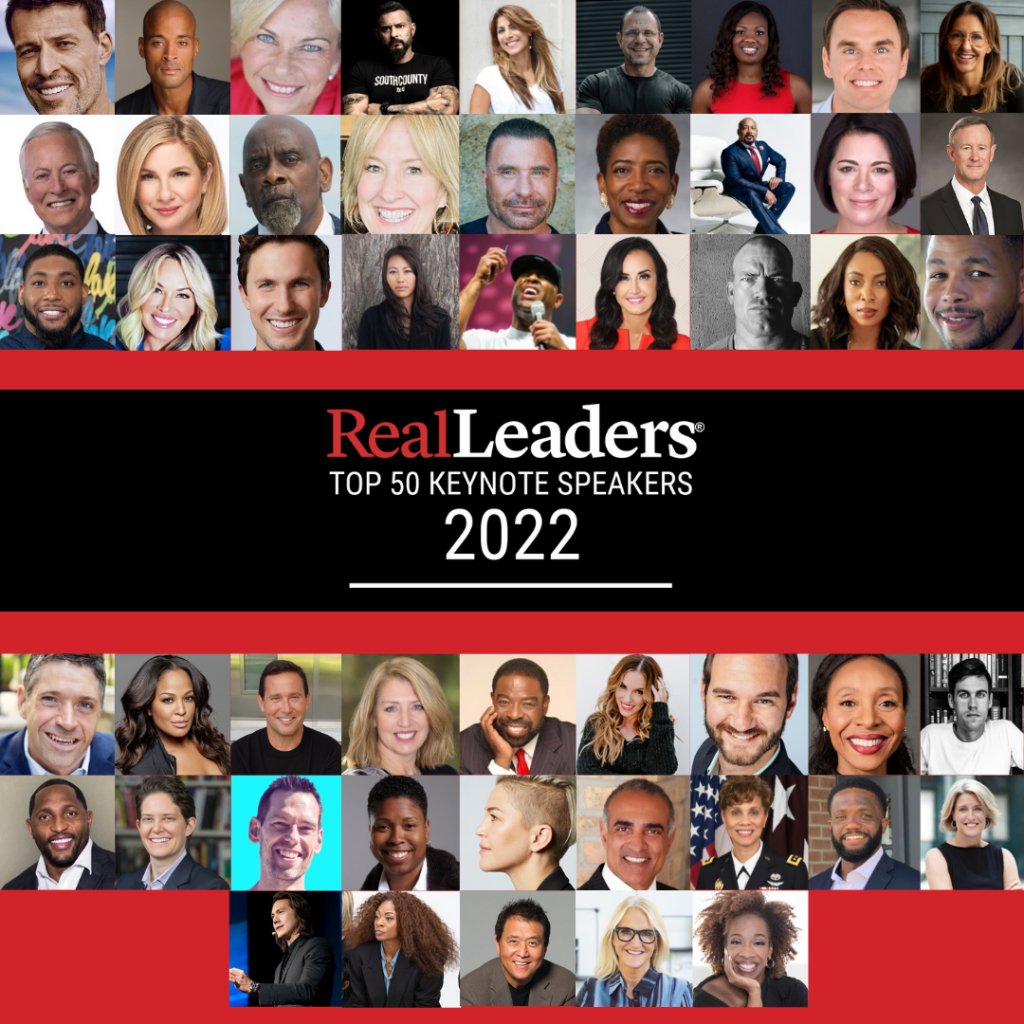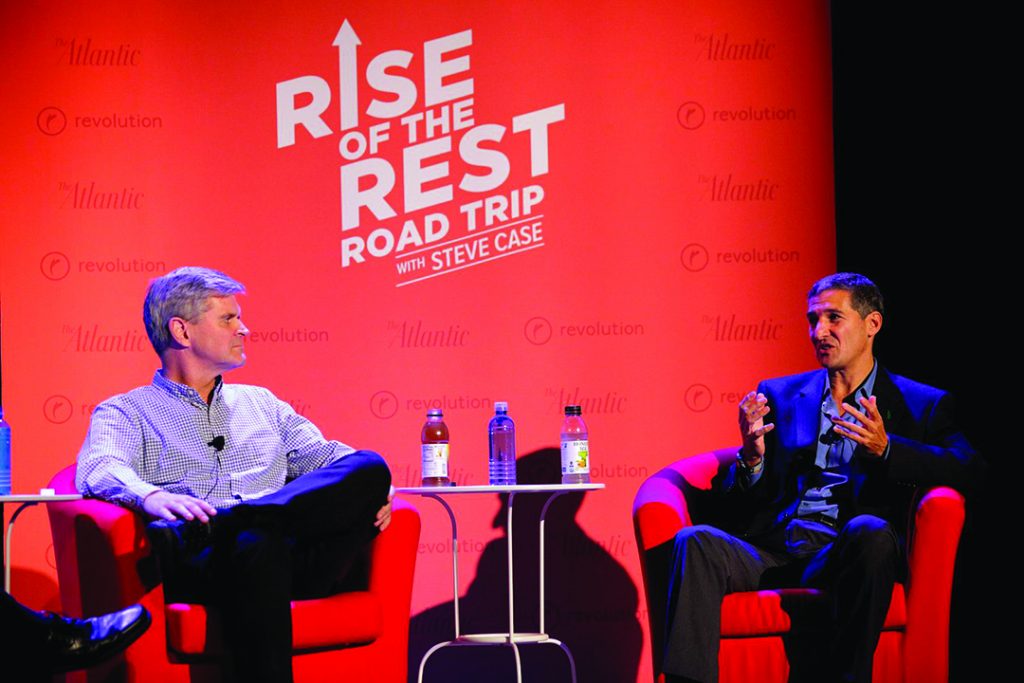Speak with Impact: 6 Burning Qs Answered

These public speaking secrets will help CEOs be more effective.
Every CEO who aspires to be a real leader needs to speak with impact. This includes calls with investors and the media, talks with board members and employees, and major speeches to large public audiences. When I was tapped to lead President Ronald Reagan’s White House Office on Impact and as chief of staff for first lady Nancy Reagan, I entered a “zero-error zone” for public communication. The global media was watching and listening 24/7. In returning to the private sector, I have put these White House lessons to the test as a public speaker myself, including before large crowds and more intimate settings on podcasts, radio, and TV shows. Along the way I wrote a bestselling book, Winning Your Audience, and have been asked to coach many corporate leaders, heads of family offices, start-up executives, and serial billionaires, as well as fundraisers and sales personnel. These sessions have helped focus, transform, and give confidence to tentative public speakers and helped them connect with their audiences in an impactful way. Here are my answers to six burning questions I have often been asked. I hope they help you.
Q: WHY AM I MORE NERVOUS TO SPEAK IN FRONT OF A SMALL GROUP THAN A LARGE CROWD — AND WHAT CAN I DO ABOUT IT?
A: Probably because you care more. With a small group, there is more personal eye contact, whereas with a large crowd, faces and personalities often fade. In this case, you need to up your confidence and focus on the content rather than the size of the audience. If you reach one person with your message, you can count it as a win. Recently, I was asked to speak to a crowd of about 60 people, many of whom I knew personally. As I surveyed the room, I felt I was just not reaching anyone. Well, that was just fear and doubt raising its head. Afterward, the leader of the group approached me and said she could have listened to me for hours. How we see and hear ourselves is rarely how individuals in the crowd see us. So, let it go. Stop personalizing your presentation. Let the content deliver. Small or large crowd — it never matters.
Lessons from Queen Elizabeth II

I had the pleasure of connecting with Queen Elizabeth II over 25 times through the years. I learned many lessons from her that have become staples in my communications strategy and coaching. When she was in San Francisco for a state visit, she invited a small group of us to have dinner with her at the famed Trader Vic’s restaurant. She came over to me during cocktails and asked what I was drinking and then started quizzing me on how she could use the HP computer I had arranged to be a gift to her from the American people. Genuine curiosity was the hallmark of her communication — and it was not stiff or pretentious, though few would know that from watching her from afar. The next night, I was invited to her private suite on The Royal Yacht Britannia where she and Prince Phillp gave me two gifts: a signed picture of both of them and gold cufflinks, which I cherish to this day. These are two skills she practiced that will help anyone communicate better: curiosity about others and gratitude for what people have done for you.
Q: WHAT IS THE BEST STRUCTURE FOR A GREAT SPEECH?
A: This is one of my favorite questions. A speech is like great architecture. It has a foundation, an interior, and the final statement. In your outline, start with why you are speaking about a particular theme, then tell the audience you will share with them four points that support your theme (these are the floors of the building), and conclude with a statement that wraps it all up. But never forget how President Ronald Reagan ended every speech. He asked something of his audience. He sent them out thinking about what they could do. That always made a lasting impact and a connection between the speaker and the audience.
Q: WHAT ARE SOME STRATEGIES IF I WANT MY SPEECH TO MOVE PEOPLE TO ACTION?
A: Be inspiring and illustrate how other people have successfully taken on an issue. People like stories about other people who have accomplished something they themselves would like to tackle. Tell stories about heroes. This makes people want to be like them, and it gives them courage to act themselves. Another way is to factually and accurately state the problem that needs to be addressed. This is where Ukrainian President Volodymyr Zelenskyy has set the bar. He inspires people with his own heroic leadership — being willing to die for his people and his country. I would follow his example — even on a topic with much less urgency and consequences. Don’t just tell other people what they should do. Give an example of how you have done it yourself — how you have made the sacrifice.
Q: I AM INTROVERTED. IS IT NECESSARY FOR A LEADER TO BE GOOD AT GIVING SPEECHES? WHAT ARE SOME EFFECTIVE ALTERNATIVES TO GETTING MY MESSAGE ACROSS WITHOUT STEPPING ON A STAGE?
A: Ah, to be an effective leader is to have successful communication skills. Accomplishments or goals without the ability to communicate them effectively is a zero-sum game. And we see much of this today. To be introverted is just to be self-focused rather than other-focused. If you are or will be in a leadership role, there are effective ways to be coached out of this trap of being self-consumed. It’s time to shed this handicap, and you can do it. Your voice is needed in any leadership role. Sure, you can broadcast, tape, or write messages to your constituency, but ultimately some sort of immediate problem is going to catch you. Look at the CEO of Boeing when his two planes went down. He lost his job for numerous reasons, among them because he could not communicate adequately his sorrow over the accidents and his concern and care for the families who suffered tragically. Abandon self. You can do this.
Q: WHAT ARE THE TOP THREE COMMON MISTAKES THAT SPEAKERS MAKE?
A: Great question!
1. Speaking too long. Remember, no speech should be more than 21 minutes generally speaking. That is when the audience runs out of listening ability. Before one audience, I spoke for an hour and 15 minutes, and only because I sensed the audience was right with me and wanted to hear more. I was shocked to have received a standing ovation, rather than being booted out of the hall. Better to stick with the short approach and leave them wanting more.
2. Never or rarely talk about how great, smart, or accomplished you are or how much money you have and spend on philanthropy, race cars, etc. I am serious. I have heard speeches like this, and I wanted to walk out. Grandiosity is deadly. Never use the first- person singular when speaking. Never say, “I did this and that,” but rather say, “We did this,” or “Our team did this.”
3. Never call for questions following your speech. The audience didn’t come to hear other people in the audience. They came to hear you. If you do, then you are creating a runway for people in the audience to even pivot your points to theirs. People in audiences can be grandstanders using the opportunity of your speech to disagree or to throw you off with a curve ball. Agree to speak to anyone following your address in the lobby or an adjacent room. One time not long ago, someone stood following my talk and asked me to comment on Leo Tolstoy’s homage to President Abraham Lincoln. Oh my. My talk was about leadership, but I surely did not know that Tolstoy had written about Lincoln. This was an attempt to belittle my talk and underscore the intelligence of the person in the audience.
Q: WHEN IS IT BETTER TO READ FROM A PREPARED SCRIPT VERSUS TO SPEAK CANDIDLY FROM YOUR HEAD AND HEART
A: I can relate because I often vacillate on this issue. In fact, I gave a keynote speech on “The Radical Disappearance of Global Leadership,” and since it was a serious speech laced with quotes from Winston Churchill and others, I elected to write out my speech. Sometimes, it’s good to do this if you think your speech might be published or if you may be asked for a copy of your presentation. However, audiences naturally may be more responsive when you deliver your remarks with eye contact and spontaneity, as opposed to looking down at a script the entire time. Possibly the best approach is hybrid. That is, make notes in outline form that you can refer to. As long as you are knowledgeable about your topic and you can glance at your outline, you should be good to go. It’s always good to have the crutch of an outline in front of you — even if you have memorized your speech — because a million things can distract you. This keeps you on course.
James Rosebush is founder of the Intersection Impact Fund, author of three bestselling books, frequent public speaker, and CEO of GrowthStrategy Inc., a corporate and family office advisory firm. He was tapped to start and manage the first White House Office on Impact, was the longest-serving chief of staff to first lady Nancy Reagan, and was nominated by President Ronald Reagan to serve as U.S. Ambassador to UNESCO. One of his more fulfilling assignments has been to coach executives and leaders to speak like the “Great Communicator” Ronald Reagan.





Responses